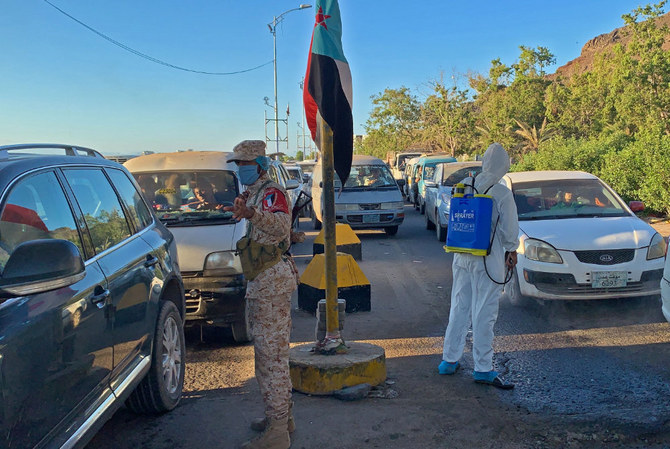AL-MUKALLA: Thousands of Yemenis are flooding out of the country’s major cities and heading for the countryside as local authorities tighten restrictions to combat the spread of COVID-19.
There are now more than 80 confirmed cases of COVID-19 in Yeman, with 12 deaths and local authorities have placed several cities under 24-hour lockdown, banned religious gatherings, and ordered people to stay home as much as they can.
To avoid the restrictions — along with regular, and long-lasting, power cuts — thousands of Yemenis have departed large cities including Al-Mukalla and Aden and headed to the countryside where they can observe Ramadan and Eid Al-Fitr without strict restrictions.
Saleh Omer left Al-Mukalla, the capital of Yemen’s southeastern province of Hadramout, and went to his village in the Dawan district where, he said, life is “almost normal.”
“People invite each other to iftar, hug and kiss each other and they pray in mosques,” he told Arab News.
In contrast, Al-Mukalla has had a curfew in place from 4 p.m. to 4 a.m. for almost a week.
“The weather here is less harsh than the city, plus electricity goes off for (only) three hours in every 48,” Omer continued.
The exodus has meant a significant increase in work for bus and taxi drivers, and their passengers usually have no protective clothing such as gloves or masks. Salem Ahmad, a driver, told Arab News that he only transports relatives or friends from Al- Mukalla, as he believes this makes him less likely to contract the disease.
“I only carry people I know very well. The roads are full of cars that carry people from the city to the countryside,” he said.
“Stay-at-home orders are not strictly enforced in the villages,” Mohamed Salem Bin Jumaan, associate professor of sociology at Hadramout University told Arab News. He added that many people who lost their jobs during the curfew had already departed to the villages. “Social gatherings such as mass iftars, visits or Taraweeh prayers have largely been unaffected by the restrictions in the cities,” Bin Jumaan said, predicting that people would challenge any attempt by the government to limit social contact during Eid Al-Fitr.
“Many elderly people would get angry if relatives did not visit them at Eid. Even with the threat of coronavirus, people would move from one house to another to exchange greetings,” Bin Jumaan said, urging authorities to use force to impose restrictions or risk the spread of the disease.
“The spread of coronavirus in the countryside poses a greater threat to residents since health facilities are weaker than those in cities,” he said.
Aden, Yemen’s temporary capital, has become a hotbed for COVID-19, dengue fever, and the chikungunya virus as heavy rains and sporadic fighting ravage the city. The increasing number of COVID-19 cases has pushed the Yemeni authorities to declare Aden an “infested” city. Thousands of people have gone from Aden to the city of Taiz, which is now witnessing a surge of COVID-19 cases, according to health officials. Local authorities say they are unable to close the city off completely, but that they cannot offer the necessary healthcare to new arrivals either.
“Between 20 to 30 buses come into the city from Aden every day,” Dr. Yassen Abdul Malik, the head of health surveillance department at the city’s office of the Ministry of Health, told Arab News. “We cannot stop them from entering Taiz, nor can we test them.”
Abdul Malik said his department is currently unable to test samples “due to a shortage of reagents.”
He warned that urban and rural areas alike will likely see a major increase in COVID-19 cases because of the continuing influx of people from Aden.




























